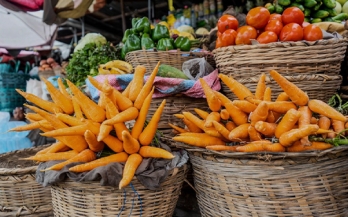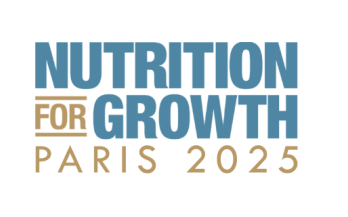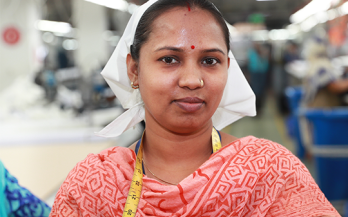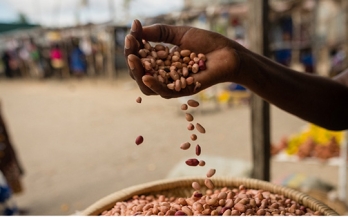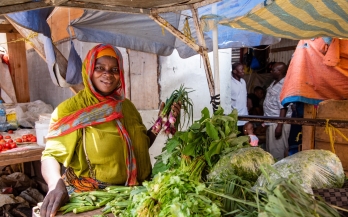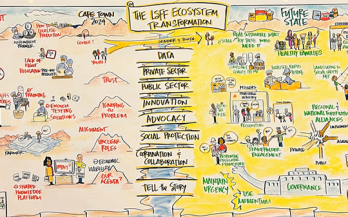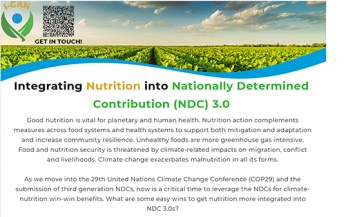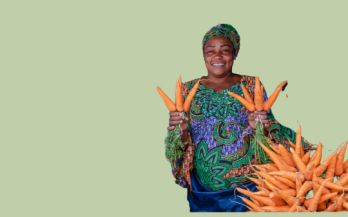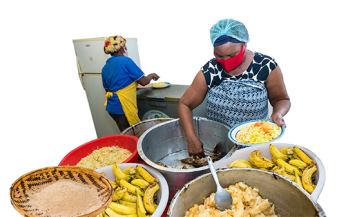- 09/12/2024
As part of the Nourishing Food Pathways (NFP) programme, GAIN is working to strengthen efforts to understand and measure progress on food system transformation. Clear progress measures can provide decision-makers with the visibility and the flexibility to course-correct as needed to realise the desired impact, and can help to ensure accountability for action. To this end, one of the workstreams under NFP aims to develop, test, and validate novel methods and metrics for assessing food systems transformation. To ensure that this work is grounded in local food system stakeholders’ needs and preferences, GAIN worked with Food Systems Foresight to solicit input from national stakeholders across five African countries (Ethiopia, Mozambique, Nigeria, Tanzania, and Kenya) on priority indicator gaps for monitoring food systems transformation. This paper reports on the outcomes of that work.
- 03/12/2024
The PSWG fosters an open dialogue between public and private sector actors on selected priority areas in addressing all forms of malnutrition. It recognizes that many of the root causes of malnutrition cannot be solved without the involvement of those who grow, produce, and market food. These commitments, while important, are part of a larger goal to catalyse sustained private sector action, complementing efforts by other N4G stakeholders.
- 28/11/2024
This report presents objective findings on the current levels of nutrition integration in international instruments and guidelines, and national legislations, regulations and procedures. Nutrition is only integrated in a few examples. Many laws, instruments and codes were developed before worker malnutrition was as prominent an issue and before newer scientific evidence emerged linking worker performance to improved nutrition. This new context, married with the evidence in this report, highlights the enormous opportunity presented to future labour standard setting for employees and employers.
- 28/11/2024
Political economy dynamics—that is, conflicts and trade-offs across different interest groups that play an important role in the food system—permeate many decisions about food systems policy and implementation. Development practitioners working in the food systems space—inclusive of agriculture, nutrition, and environment—need to be aware of these dynamics to be able to support policy advocacy, development, and implementation.
To assist in anticipating policy bottlenecks to food systems transformation, a toolkit was developed to examine six main domains within national policy systems. The six domains are: policy stability and inclusionary decision-making, stakeholder preferences, multi-sectoral coordination, multi-level coordination, financing, and administrative capacities.
- 14/11/2024
DELIVER Nigeria is a transformative three-year project (July 2024 - June 2027) designed to enhance the livelihoods of smallholder vegetable farmers in Kaduna and Kano states. This initiative, led by the Global Alliance for Improved Nutrition (GAIN) in partnership with East-West Seed Knowledge Transfer Foundation (EWS-KT) and Wageningen University and Research (WUR), addresses key challenges such as low yields, limited market access, high postharvest losses, and inadequate finance.
- 12/11/2024
Deficiencies in essential vitamins and minerals (micronutrients) cause devastating damage, particularly for children and women of reproductive age, resulting in increased risks of death, disabilities, more severe and longer-lasting illness, and compromised cognitive and physical development and performance and productivity of people and countries.
- 12/11/2024
Good nutrition is vital for planetary and human health. Nutrition action complements measures across food systems and health systems to support both mitigation and adaptation and increase community resilience. Unhealthy foods are more greenhouse gas intensive. Food and nutrition security is threatened by climate-related impacts on migration, conflict and livelihoods. Climate change exacerbates malnutrition in all its forms.
- 07/11/2024
A diverse diet is important for health and well-being, contributing to lower malnutrition, including micronutrient deficiency diseases (hidden hunger), as well as underweight, overweight, and associated ill health like low immune system function and non-communicable diseases. It is highlighted under Rwanda’s draft Strategic Plan for Agricultural Transformation (PSTA-5) (2024 to 2030).
- 22/10/2024
The Initiative on Climate Action and Nutrition (I-CAN) presents a new report that analyses the intersection of biodiversity and nutrition, "Biodiversity and Nutrition Synergies: Evaluating National Biodiversity Strategies and Actions Plans for Integration." The report offers a comprehensive analysis of 192 National Biodiversity Strategies and Action Plans (NBSAPs), revealing the current state of nutrition integration in biodiversity policies worldwide.
- 06/11/2024
ToeffectivelytransformMozambique’snationalfoodsystemsinalignmentwiththeUnited Nations Food Systems Summit pathways, it is crucial to have access to current data and analytics. Mozambique’s Food Systems Dashboard, hosted by SETSAN1 (the National Secretariat for Food and Nutrition Security under the Ministry of Agriculture), plays a pivotal role in this transformation.
